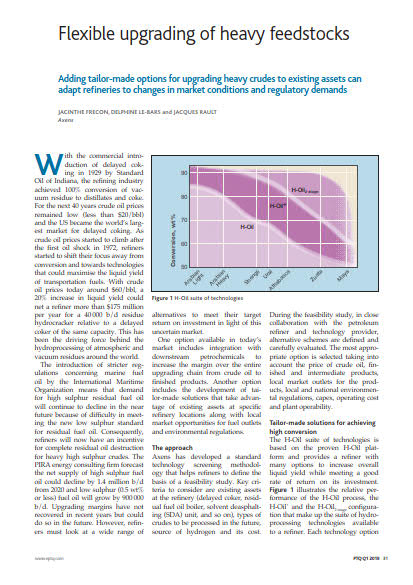
With the commercial introduction of delayed coking in 1929 by Standard Oil of Indiana, the refining industry achieved 100% conversion of vacuum residue to distillates and coke. For the next 40 years crude oil prices remained low (less than $20/bbl) and the US became the world’s largest market for delayed coking.